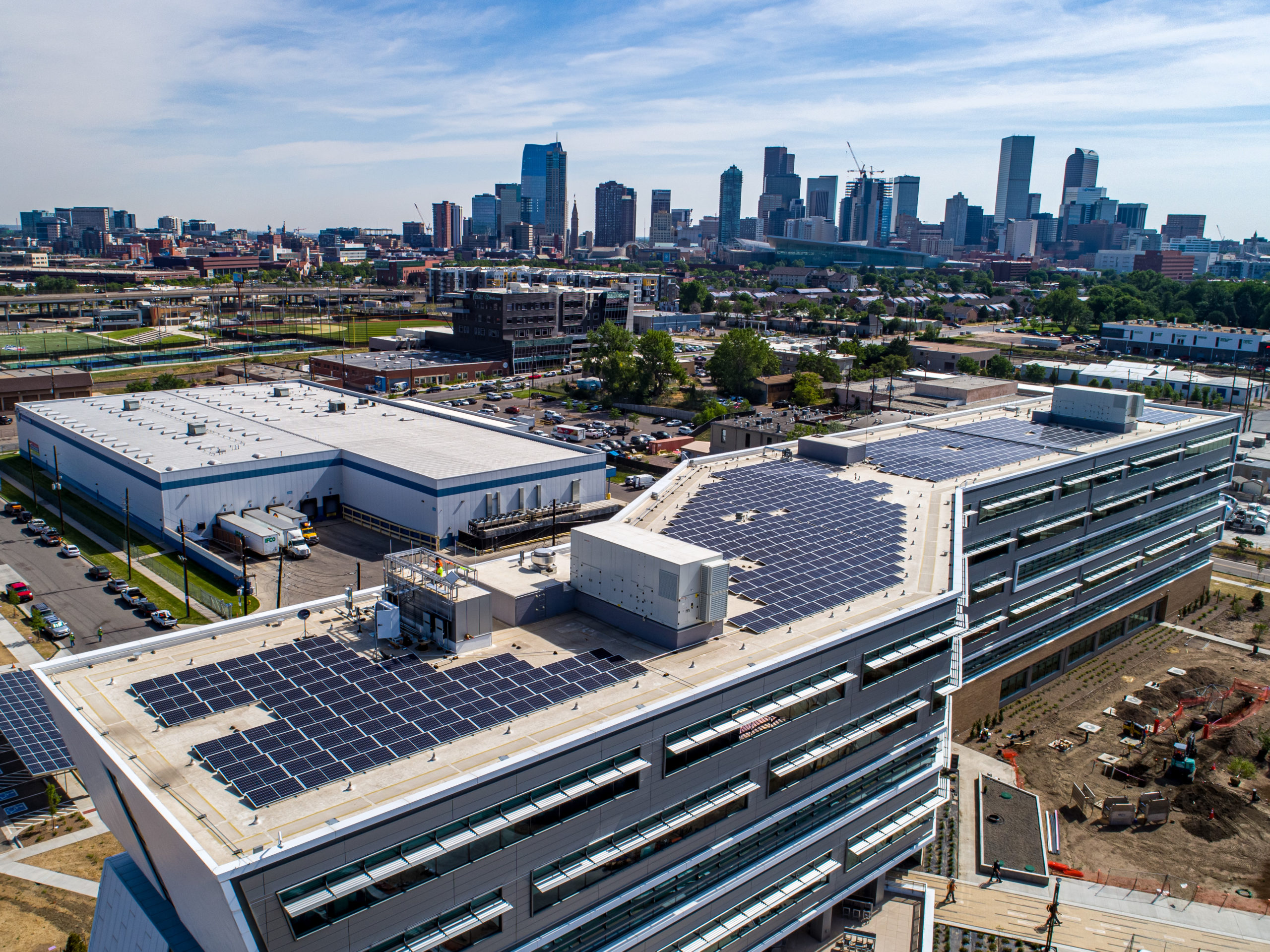The 2021 City Clean Energy Scorecard, released today by the American Council for an Energy-Efficient Economy (ACEEE), ranks 100 major U.S. cities on efforts including reducing energy waste in homes and buildings and moving toward a cleaner power grid—and doing so equitably. It identifies the leading cities, the most improved, and those with ample room for progress, citing opportunities for each to advance.
Denver has shown strong performance in the rankings and once again earned a spot in the top 10. The city (No.7) can continue its improvement by making more progress on transportation policies and local government operations. By comparison, Aurora ranked at No. 30 and Colorado Springs ranked at No.58.
San Francisco took top honors for the first time in this sixth edition of the Scorecard, followed by Seattle (#2), Washington, DC (#3), Minneapolis (#4), and Boston and New York (tied for #5).
Cities earned credit for policies and programs such as requiring large buildings to reduce energy waste or subsidizing access to transit and other efficient transportation options for historically marginalized groups, and for their success in reducing their overall greenhouse gas emissions.
“COVID relief and infrastructure funds from Congress provide a big opportunity for all cities to step up their efforts,” said Samarripas local policy manager at ACEEE and lead author of the report. “Cities can invest in upgrading buildings to cut costly energy waste. They can invest in efficient transportation, including public transit, to help lower-income residents reduce their travel costs and protect the climate. The leading cities provide helpful models for those at much earlier stages of their efforts.”
DENVER SCORECARD:
COMMUNITY-WIDE INITIATIVES (9.5 OF 15 POINTS)
Denver’s climate change mitigation and renewable energy goals set the vision for a clean energy future. Based on emissions data from past years, ACEEE projects the city will come close to achieving its near-term, community-wide climate mitigation goal of 30% below 2005 levels by 2025. Denver’s Climate Protection Fund aims to spend 50% of its budget with a lens towards equity, race, and social justice. The Energy Future Collaborative with Xcel Energy supports the creation of distributed energy systems with integrated energy storage. To mitigate the urban heat island effect, the city aims to increase urban tree canopy to 18% by 2025.
BUILDINGS POLICIES (26.5 OF 30 POINTS)
Denver adopted the 2018 International Energy Conservation Code with local amendments. Single- and two-family homes must adhere to EV-readiness requirements, and all new residential construction must be solar ready. Denver’s Green Building Ordinance requires that all new buildings or additions over 25,0000 square feet take one of eight possible green or energy actions or achieve a combination thereof. Energize Denver requires benchmarking for commercial and multifamily buildings, and Colorado House Bill 21-1286 requires those buildings to meet performance standards, benchmark energy use, and disclose energy use at the time-of-sale or -rent. The city offers incentives for energy efficiency such as PACE financing and expedited permits. Denver partners with Xcel Energy to provide a clean energy workforce development program and offers a paid solar training program in partnership with GRID alternatives.
TRANSPORTATION POLICIES (16 OF 30 POINTS)
Of low-income households in Denver, 15.7% have access to high-quality transit. With 68.5 per 100,000 people, the city
has a moderate number of EV charging station ports available for public use. Denver has neither a sustainable freight transportation plan nor policies that address freight efficiency. The city does have a Sustainability Community Mobility Goal to provide mobility options that reduce single-occupancy-vehicle commuting travel to no more than 50% of all trips by 2030 and 80% of all trips by 2050. Transportation entities that serve Denver have received roughly $290.07 per capita on average in local transit funding annually between 2015 and 2019, a moderate funding level.
ENERGY AND WATER UTILITIES (13 OF 15 POINTS)
Compared to other utilities, Xcel Energy shows moderate savings as a percentage of sales for electric efficiency programs and low savings for natural gas efficiency programs. The utility offers a portfolio of energy efficiency programs for low-income customers, including comprehensive programs and health and safety measures for single- and multifamily properties. Denver and Xcel Energy provide community-wide energy use information for planning and evaluation purposes. The city actively participates in regulatory proceedings to advocate for rapid and equitable decarbonization of Xcel’s Colorado grid. The city and county of Denver and Xcel Energy have formed a partnership that lays out an expedited pathway for Denver to pursue independent clean energy projects that help it meet its energy and climate goals. Xcel Energy set a stringent goal to provide customers with 100% carbon-free electricity by 2050.
LOCAL GOVERNMENT OPERATIONS (4 OF 10 POINTS)
Denver does not have current goals for municipal GHG emissions. The city integrates clean energy into its procurement and construction strategies, it requires the purchase of hybrids and high-efficiency vehicles, and although it has not adopted a policy requiring efficient outdoor lighting, it has converted 63% of streetlights to LEDs. Denver has installed 1.5 MW of onsite solar capacity on city facilities. We were unable to verify that the city has inclusive contracting policies used for energy projects. Denver benchmarks all public building energy use, assesses facilities to identify energy efficiency opportunities, and conducts retrofits based on energy use data.
Colorado Springs had its best achievements in buildings policies and rose substantially in the rankings from the previous Scorecard. However, the city has room to improve across all categories, particularly in transportation policies. It could take many actions that would serve as stepping-stones to a clean energy future.
Aurora performed best in the energy and water utilities category. The city moved up several spots in the rankings from the previous Scorecard. It can improve across all policy areas to advance its rank in the next edition, most notably in local government operations.









